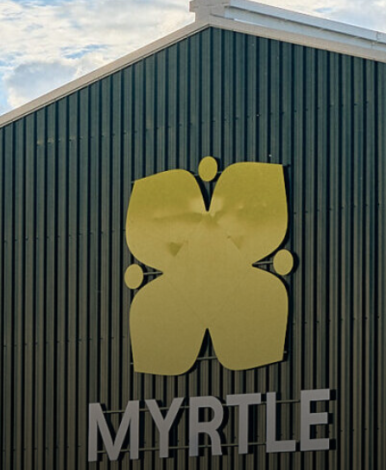-
Australian MCi Carbon launches CO₂ -to-materials plant at COP30
Date posted:
-
-
Post Author
Tracey Biller
-

At COP30, currently underway in Belém, Brazil, Australian clean tech company MCi Carbon has announced that Myrtle, its mineral carbonation demonstration plant in Newcastle, Australia, is now open for business.
Myrtle transforms captured CO2 and mineral feedstocks into saleable materials, using mineral carbonation to react CO2 with industrial residues such as steel slag, mine tailings, or ultramafic rocks. The reaction forms stable carbonates that lock in CO2 and replace high-emissions inputs in common products such as concrete, plasterboard, paints, and paper.
MCi Carbon’s Research Pilot Plant has been in operation since 2016 and screens feedstocks, simulates flue gases, and delivers rapid techno-economic checks. By the end of COP30 (November 21), the plant will be ready to run 24/7 campaigns with partners across steel, cement, and other hard-to-abate sectors. At full capacity, it can mineralise ~2,500 tonnes of CO2 per year into ~10,000 tonnes of materials, generating field data for customer trials and industry standards.
Speaking at the Australia Pavilion, MCi Carbon Co-Founder and COO Sophia Hamblin Wang said, “At Myrtle, customers can see the process, run a campaign, and use the results to decide on a scalable project.” She also demonstrated samples of Myrtle’s carbon-embodied materials, produced during recent customer trials.
According to the company’s press statement, the market opportunity for low-embodied-carbon building materials is accelerating as governments adopt ‘Buy Clean’ policies and major infrastructure owners introduce sustainability requirements for concrete and cement. Low-carbon construction materials have a total addressable market worth trillions of dollars and could lock away gigatonnes of CO2 each year at scale, potentially creating negative emissions products. With Myrtle providing industrial-scale validation, MCi Carbon helps customers convert decarbonisation goals into bankable projects.
In February 2025, Mitsubishi UBE Cement Corporation (MUCC) invested US$5 million and signed a collaboration agreement as part of a funding round exceeding US$20 million, valuing MCi Carbon at over US$200 million; MUCC joins MCi’s other Japanese partners ITOCHU Corporation, Mizuho Bank, and Sumitomo Mitsui Trust Bank. In Europe, MCi Carbon’s first commercial blueprint with RHI Magnesita in Austria is planned at ~50,000 t CO2 per year, intended as a template for larger deployments worldwide.
“This breakthrough shortens validation cycles and improves bankability for first-of-a-kind plants,” says MCi Carbon Founder and CEO Marcus Dawe. “Myrtle demonstrates an export-ready Australian technology that delivers emissions reductions in infrastructure while enabling global partners to move faster.”
The United Nations Framework Convention on Climate Change (UNFCCC), thirtieth Conference of the Parties (COP 30) runs from 10 to 21 November in Belém, Brazil.
